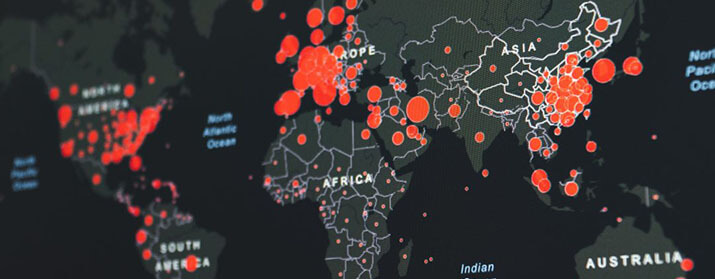Contact: Alexander Stern, [email protected]
Misinformation can be dangerous even during times of relative calm, but during a health crisis like the current pandemic the stakes are much higher.
Titled “Going Viral: How Social Media Is Making the Coronavirus Worse,” a new study from the Reboot Foundation found that close to a third of the public may harbor false views about the pandemic.
“Defeating the coronavirus depends on an informed and conscientious public that will conform to social distancing guidelines; practice good hygiene; and avoid unnecessary trips away from home,” says Helen Lee Bouygues, author of the report and head of the Reboot Foundation. “But so far the public’s response has been mixed, and misinformation about COVID-19 are a big part of the problem.”
To help understand the role misinformation is playing in the crisis, Reboot’s study both surveyed members of the public to see how well they understood COVID-19 and analyzed social media posts about the virus.
The survey included 1,000 participants, from a diverse range of ages and geographical locations. The team drew on information from the Center for Disease Control and Prevention and the World Health Organization.
The results of the survey included the following:
- 26 percent thought the virus was likely to die off in the spring, even though health experts are uncertain how temperature affects the spread of the virus.
- 10 percent thought regularly rinsing their nose with saline would help ward off the virus.
- 12 percent believed COVID-19 was created by people.
Many survey participants, moreover, did not take the virus as seriously as one might hope: 20 percent believed it was not serious, while only 18 percent thought it was “extremely serious.”
Reboot’s research team also investigated the effect higher rates of social media use had on participants’ responses.
Those who only checked social media infrequently were significantly less likely (22 percent) to be misinformed about the virus than those who checked it hourly or more (36 percent).
Finally, the analysis investigated Twitter activity and showed that during March, there were about 1,000 tweets per minute about COVID-19.
In short, the information on social media about COVID-19 is high in volume and low in quality, and heavy users of social media tend to exhibit a poor understanding of the crisis.
“These results are alarming because an ill-informed public could undermine efforts to contain the virus,” says Helen Lee Bouygues. “The coronavirus crisis is being exacerbated by a crisis in basic media literacy.”



